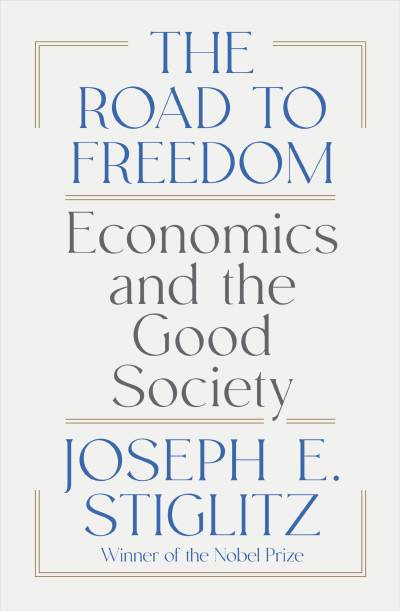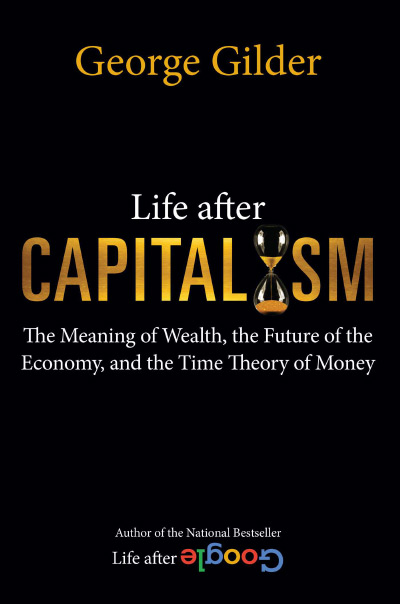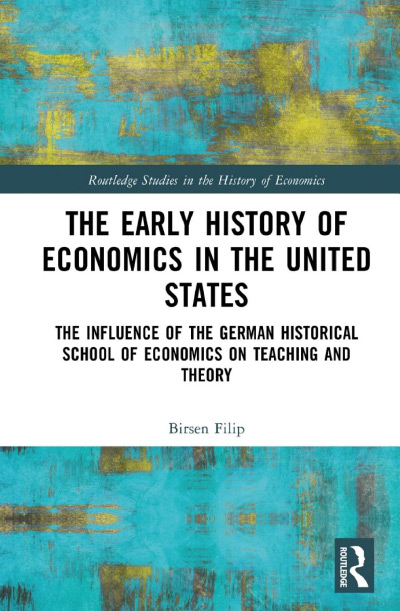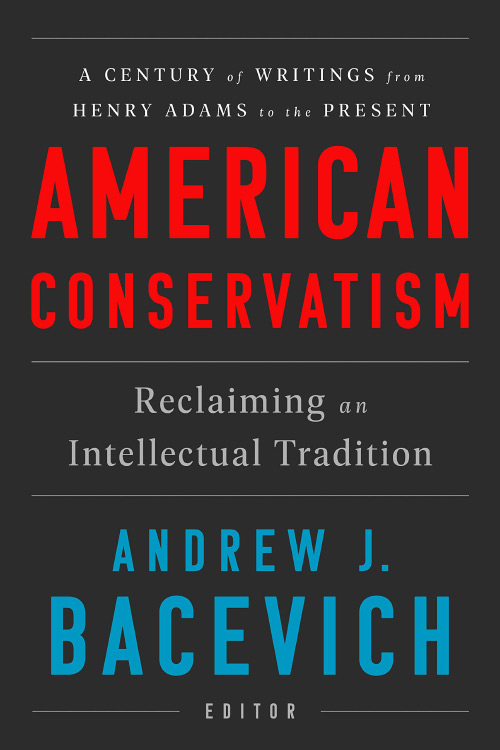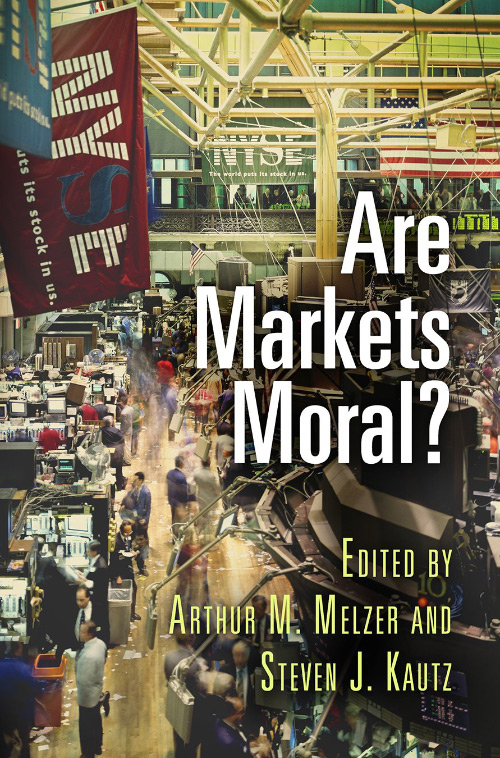There are many economics books about whether markets should be more or less regulated or how ideas develop, but Jacob Soll’s Free Market: The History of an Idea differs from the others. Unlike Nancy MacLean’s 2018, Democracy in Chains (New York: Penguin) or Naomi Oreskes and Erik Conway’s 2023, The Big Myth (New York: Bloomsbury), Soll does not paint a story of good and evil. No, Soll’s book is a much more academic treatment of the history of economic thought, which is dense enough for scholars but easily accessible enough for more casual readers. Soll reaches deep back into history to chronicle how the idea of free markets developed into our modern and often paradoxical conception. On the one hand, we have a libertarian concept of free markets as the lack of government intervention and regulation. On the other, there are concepts such as the “China Model.” Proponents of these and other systems somehow all claim to be “pro-free market.” Understanding this requires understanding the history of an idea, and Soll takes readers on that journey.
Free markets did not always mean a lack of government in the market, and the story of the idea begins with Cicero, or at least Soll argues it should. Cicero argued that stoic morals and disinterested service to the state would create a market that would work naturally. According to Cicero, the state or statesman establishes a system of ethical trade where greed is constrained. Only then can people trade freely in a system of love, duty, and friendship. This Ciceronian thread of virtue runs through the entire book.
Soll continues the development of free market ideas over 2,000 years. For any period of success, he highlights the Ciceronian virtues at play. That is true for the wealth-generating influence of the Christian Church especially post-St. Augustine, where monasteries served as early forms of the corporation. Again, he highlights the same virtues in Jean-Baptiste Colbert’s protectionist and pro-industry policies of seventeenth-century France. It is only since the late nineteenth and early twentieth century that free markets meant antigovernment, at least in this account. Ludwig von Mises and F.A. Hayek played a crucial role in transforming the idea. Where Leon Walras, William Jevons, and Alfred Marshall had developed theories of equilibrating markets without government intervention, Mises and Hayek argued that economic freedom was vital to combating tyranny. And at the time, tyranny was indeed a real threat. This new conception of free markets interprets economic freedom and individual liberty as intertwined if not the same thing. This was indeed a major departure from the virtues of Cicero.
Soll’s book does cause readers to wrestle with the messy development of the free market as an idea. The idea of economic freedom and efficient markets was not dreamt of in a day and re-argued over time. Instead, as Soll shows, the idea of economic freedom and efficient markets developed over thousands of years. Often free trade meant something entirely different from how we think of it today. His work reminds us to be careful when using old authors to defend modern arguments. In this way, Soll’s work is quite similar to Benjamin Constant’s 1819, “The Liberty of Ancients Compared with that of Moderns”.
Another engaging insight readers may take away is how old some ideas are. Take the quantitative theory of money, often associated with Milton Friedman. Soll, however, details similar ideas in Jean Bodin’s 1568 Response to the Paradoxes of Monsieur de Maslestroit, in which Bodin provided an early data-driven quantity theory of money. Accounts like this should make modern scholars humbler concerning our theories. Instead of coming up with something new, we often only rediscover or amend older ideas. It also calls us to question why some ideas have taken so long to stick.
In some ways, Soll’s book should be read through the lens of his last chapter. In conclusion, Soll turns to modern issues, such as the marketization of China starting in 1978. Indeed, China is an odd mix of free enterprise economics and authoritarian politics, especially given the free market ideas of the twentieth century, where individual liberty, free markets, political freedom, and prosperity go hand in hand. However, Soll reminds us of the history of free market ideas. Until recently, the government was not considered the antithesis of markets and liberty. China’s mix of markets and government was a common view of free market thought throughout history. Soll writes, the “Chinese socialist market economy looked like nothing so much as a more efficient version of Colbert’s absolutist capitalism, with all the advantages, risks, and horrors of political despotism” (p. 265). And it is to remind us of this that Soll takes readers on a journey through history.
Soll’s work covers over two thousand years and is packed with accounts of debates and institutional changes through the centuries. Doing this in roughly 270 pages is no small task and requires some condensing of scholars’ ideas. As long as the summaries are accurate and charitable, that is no problem; however, Soll makes some major errors, especially regarding Adam Smith. On page 4, he writes, “It was a time of expanding empire and commerce, slavery, constitutional monarchy, elite parliamentarianism, and landowning oligarchy—all things, it should be noted, that [Adam Smith] embraced with enthusiasm.” Soll provides no direct quote here or later when he addresses Smith’s views on slavery. This interpretation is at odds with the general understanding of Smith’s views on slavery. Jack Russell Weinstein, in his piece 2019, Adam Smith on Slavery, (Adam Smith Works, May 15) nicely sums up Smith’s abolitionist position. Smith constructed an economic argument against slavery because he thought it would be the most effective path to abolition. That is the argument in The Wealth of Nations, but in The Theory of Moral Sentiments, Smith is more explicit. He writes,
Fortune never exerted more cruelly her empire over mankind, than when she subjected those nations of heroes to the refuse of the jails of Europe, to wretches who possess the virtues neither of the countries which they come from, nor of those which they go to, and whose levity, brutality, and baseness, so justly expose them to the contempt of the vanquished. (Adam Smith, 1759, The Theory of Moral Sentiments, part V, chapter ii, paragraph 9)
It might be fair to say Smith’s views and approach to slavery were complicated, but it is hard to interpret him as embracing it enthusiastically.
Soll’s chapter on Adam Smith is perhaps his most perplexing. He begins by critiquing the interpretation of many modern free market advocates that Smith was a wholehearted laissez-faire thinker. Soll presents multiple quotes often used to justify this interpretation, but he says these are often cherry-picked and devoid of historical context. Soll argues Smith believed agriculture was the source of wealth and all flowed from it; therefore, for a flourishing economy, landed elites have to be dominant. If true, Smith would be quite close to Cicero.
Soll’s critique is striking, considering how Smith’s quotes are used in the chapter. Take, for example, Soll’s interpretation of Smith’s views on the Navigation Act of 1651. He writes, “[Smith] lauded the protectionist Navigation Act of 1651 as, ‘perhaps, the wisest of all the commercial regulations in England,’ because it aimed to keep foreign merchants from undermining British trade and supported the expansion of international and imperial markets” (p. 210). This is a striking claim from the father of free markets liberalism. If, however, one looks at the entire sentence and the previous one, Smith’s view changes quite drastically:
By diminishing the number of sellers, therefore, we necessarily diminish that of buyers, and are thus likely not only to buy foreign goods the dearly, but to sell our own cheaper, than if there was a more perfect freedom of trade. As defense, however, is of much more importance than opulence, the act of navigation is, perhaps the wisest of all the commercial regulations in England. (1776, Wealth of Nations, Vol 1, book 4, chapter ii, paragraph 30)
It was only as a matter of defense that Smith thought the Navigation Act could be justified, for it was economically detrimental.
Soll also claims that Smith supported François Quesnay’s argument that merchants and manufacturers were unproductive. To Soll’s credit, Smith wrote, “Mercantile stock is equally barren and unproductive with manufacturing stock” (Adam Smith, 1776, An Inquiry to the Nature and Causes of the Wealth of Nations, Vol 2, book 4, chapter ix, paragraph 11). But the context matters, for this is Smith’s summary of the physiocrat argument. Just pages later, Smith presents his view: “The capital error of this system, however, seems to lie in its representing the class of artificers, manufacturers and merchants, as altogether barren and unproductive. The following observations may serve to show the impropriety of this representation” (1776, Wealth of Nations, Vol 2, book 4, chapter ix, paragraph 29). Smith provides three errors in treating artificers, manufacturers, and merchants as unproductive. Smith even references sections of the Wealth of Nations where he more extensively deals with the issue. “It is upon this account, that in the chapter in which I treat of productive and unproductive labour, I have classed artificers, manufacturers and merchants, among the productive labourers, and menial servants among the barren or unproductive” (1776, Wealth of Nations, Vol 2, book 4, chapter ix, paragraph 31)
Such direct references to primary text would fix the misinterpretation and instill confidence in Soll’s interpretation of historical arguments. Yet, there are few direct quotes in the book. Instead, Soll favors a more narrative style. That can be frustrating to a reader who wants a deeper understanding, but the work is targeted to a more general audience. Perhaps the book will inspire readers to pick up a dusty, old text.
One might dispute the finer details in Soll’s book, but one thing is certain: the development of the idea of free markets is a complicated one. Different aspects and interpretations have seen their time in the sun and fallen out of favor. The history of economic and political development is even more complicated. There has never been a clear distinction between markets and government. Development was a messy process (it continues to be) and occurs because of/despite both markets and government intervention. Soll argues that the mix of the two is natural and can be effective if we get it right. For me, and I may be wrong, development occurs when we get institutions that allow for cooperative gains of trade. Or from Deirdre McCloskey’s point of view, ones that foster innovism (see McCloskey and Art Carden, 2020, Leave Me Alone and I’ll Make You Rich. University of Chicago Press). I do agree wholeheartedly with Soll on one point he stresses to readers. “Faith in the market alone will not save us, but hewing to these old virtues just might” (p. 268). For Soll, these are the virtues of the first scholar he addresses, Cicero.
| Other Independent Review articles by Cameron Tilley | |
| Winter 2024/25 | Toward a Hayekian Theory of Social Change |




